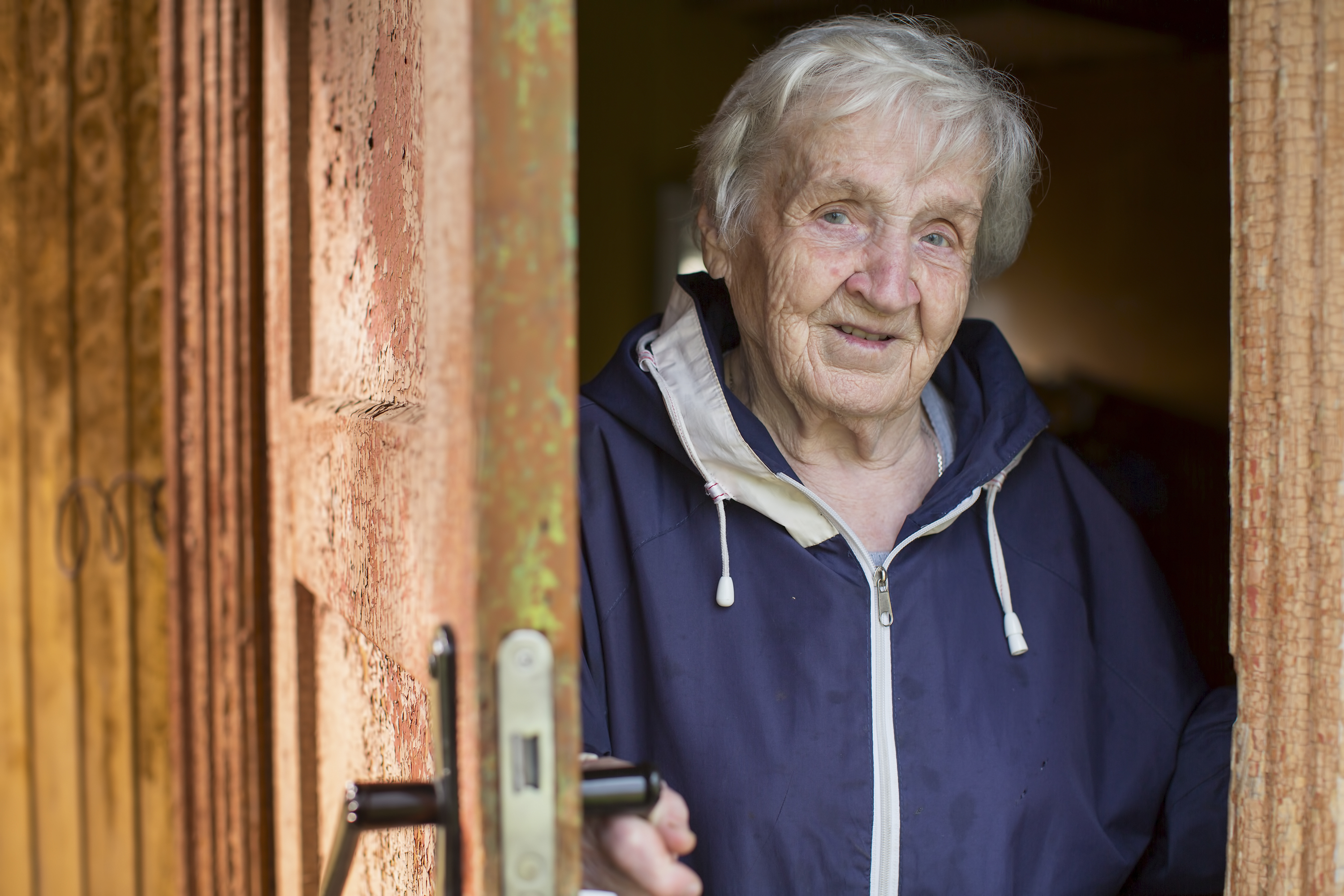Falling into deep water unexpectedly can be a terrifying experience, especially if you don’t know how to swim. Panic sets in, your instincts tell you to struggle, and before you know it, you’re exhausted and in real danger. However, survival in such a situation is entirely possible if you remain calm and follow a set of simple but life-saving steps.
According to Dr. Nash and his team of researchers, the key to survival is overcoming fear instincts and following five crucial steps. These steps are designed to help anyone—regardless of swimming ability—stay afloat, breathe, and increase their chances of rescue. Let’s dive into these life-saving techniques.
1. Stay Calm and Relax to Achieve Natural Buoyancy

The first and most critical step is to fight the urge to struggle. Many people instinctively flail their arms and legs in a desperate attempt to stay above water. However, this only wastes energy and causes faster exhaustion.
Instead, take a deep breath and allow your body to relax. When you stop panicking, your body will naturally float closer to the water’s surface. The human body is slightly less dense than water, meaning that if you remain still, you can achieve buoyancy without much effort.
2. Tilt Your Head Back to Keep Your Airway Clear
Once you’ve calmed yourself and started floating, you need to ensure that you can breathe. The best way to do this is to tilt your head back, keeping your face above the water.
Try not to move too much, as sudden movements can make you sink slightly. If you feel yourself going under, resist the urge to panic—simply take a deep breath, relax your muscles, and allow yourself to rise again.
Video : How to Survive if You Fall in Water – Prevent Yourself From Drowning – Survival Techniques
3. Breathe Slowly and Avoid Inhaling Water
Now that your nose and mouth are above water, it’s time to focus on breathing. Many people instinctively gasp for air, but this can lead to choking if water splashes into your mouth. Instead, practice controlled breathing:
- Exhale slowly through your nose to clear any water that may have entered.
- Inhale through your mouth in a controlled manner.
- If a wave covers your face, hold your breath momentarily, then resume normal breathing.
Even experienced swimmers can struggle if they inhale water, so maintaining steady breathing is crucial for survival.
4. Move Your Arms and Legs Gently to Stay Afloat
At this point, you should be floating on the water’s surface and breathing steadily. The next step is to use gentle, controlled movements to maintain your position.
- Use slow arm movements: Move your arms in a sweeping motion, like you’re making small circles in the water. This will help you stay afloat without expending too much energy.
- Legs should remain still if you don’t know how to kick properly: If you’re unsure how to tread water, keeping your legs still is often better than kicking randomly. Let them sink slightly while focusing on keeping your upper body above water.
The key here is to avoid frantic movements—slow and deliberate strokes will keep you afloat much longer.

5. Look for Rescue Opportunities
Once you’ve gained control of your breathing and movements, your next priority is finding a way to safety.
- Scan your surroundings – Look for anything floating that you can grab onto, such as a buoy, a log, or even a piece of debris. Holding onto something will help you conserve energy.
- Check your distance from the shore – If you can see land, assess whether it’s possible to move toward it using slow, steady movements.
- Signal for help – If there are people nearby, shout for help. However, conserve energy by calling out only when necessary.
If you’re caught in a strong current, do not try to swim directly against it—this will only tire you out. Instead, swim diagonally at an angle to gradually move out of the current’s pull.
What to Do If You See Someone Drowning
If you witness someone struggling in deep water, it’s important to act quickly but safely. Jumping in to rescue them may seem like the right thing to do, but unless you’re a trained rescuer, it could put both of you at risk.
Instead, follow these steps:
- Shout instructions – Encourage the person to follow the survival steps above. Remind them to relax, tilt their head back, and float.
- Find a flotation device – If possible, throw a life jacket, a rope, or any floating object they can grab onto.
- Call emergency services – Immediately contact your local emergency number and provide details of the situation.
Video : How to get over fear of water – Feel safe on the deep end
Why Staying Calm is the Key to Survival
Many drowning incidents occur not because the victim physically sinks, but because they panic and exhaust themselves. Learning how to override panic instincts and follow a survival routine can mean the difference between life and death.
Dr. Nash explains:
“Whether you’re planning a vacation, taking a walk near a river, or going for a swim, knowing how to stay safe in water is crucial. These simple survival techniques can save your life or someone else’s.”
Final Thoughts
Surviving a fall into deep water without knowing how to swim is possible—but only if you remain calm and follow the right steps. By floating, maintaining steady breathing, and making slow movements, you can conserve energy and increase your chances of rescue.
Now that you know these survival strategies, share them with your friends and family. You never know when this knowledge might save a life!
No funeral do marido, a esposa encontra uma mulher com seu bebê nos braços – História do dia

A vida de Nancy vira de cabeça para baixo no funeral do marido quando ela encontra uma mulher mais velha segurando um bebê. A mulher alega que a criança que ela está carregando é do falecido marido de Nancy. Ela está mentindo? Ou revelações mais chocantes aguardam Nancy?
Nancy olhou para os últimos vestígios do funeral do marido. Ela não conseguia acreditar que Patrick tinha ido embora. Ele tinha morrido em um acidente de carro. Já fazia uma semana, mas ela ainda conseguia senti-lo ao seu redor. Como ele poderia estar morto?
Com o coração pesado, ela foi em direção à saída do cemitério, dizendo a si mesma que precisava começar a descobrir o resto de sua vida.
De repente, uma mulher mais velha com um bebê bloqueou seu caminho.
“Você é Nancy?”, perguntou a mulher enquanto o bebê em seus braços chorava.
Nancy não a reconheceu. Quem era ela?
“Eu sou. Quem é você?” Nancy respondeu.

Apenas para fins ilustrativos | Fonte: Shutterstock
O coração de Nancy não estava preparado quando a mulher, Amanda, revelou que o bebê em seus braços era filho de Patrick.
“Só você pode cuidar dessa criança agora”, ela disse a Nancy. “A mãe dela não pode cuidar dela.”
Um arrepio percorreu a espinha de Nancy. Ela olhou para o bebê e recuou.
“Não, não pode ser! Patrick era um marido amoroso. Ele nunca faria isso comigo!”
Nancy se virou e foi embora. Ela nunca duvidaria de Patrick.
“Atenção!”
Nancy esbarrou em um dos velhos amigos de Patrick, Mike. Ela estava muito perdida em seus pensamentos para perceber para onde estava indo.
Mike começou a conversar com ela, oferecendo suas condolências. Nancy não queria falar com ninguém, mas ela tinha que ser cortês. Ela terminou a conversa assim que pôde e foi para o carro.

Apenas para fins ilustrativos | Fonte: Shutterstock
Os pensamentos do bebê se repetiam em sua mente, mas ela os descartou. No entanto, quando Nancy abriu a porta do carro, ela ficou chocada. O mesmo bebê estava deitado em seu banco de trás, chorando.
Nancy olhou ao redor. Amanda não estava em lugar nenhum. “Como esse bebê chegou aqui?”, ela se perguntou.
Estava frio, então Nancy tirou o casaco e começou a envolvê-lo no pequeno.
Mas ela congelou quando notou uma marca de nascença no pescoço do bebê. “Não pode ser”, ela murmurou para si mesma.
A marca de nascença era exatamente igual à de Patrick. Nancy não queria suspeitar que seu falecido marido a estava traindo. Mas agora, ela precisava da verdade. Ela precisava saber se Patrick tinha sido infiel a ela.
Nancy foi para casa com o bebê, tirou os fios de cabelo de Patrick da escova e foi para um hospital.

Apenas para fins ilustrativos | Fonte: Shutterstock
“Olá, gostaria de fazer um teste de paternidade”, ela disse à recepcionista no balcão.
“OK, senhora. Normalmente, demora alguns dias para obter os resultados”, disse a mulher.
“Pode ser feito mais rápido?” Nancy perguntou. “Eu pago mais.”
“Bem, nós temos serviço rápido. Deixe-me ver o que posso fazer. Mas vai custar mais caro.”
“Eu aceito”, respondeu Nancy. Ela enviou as amostras de Patrick e pagou pelo teste.
Sentada no corredor, ela estava esperando os resultados quando o bebê começou a chorar. Nancy cheirou as roupas do bebê. Sua fralda não precisava ser trocada.
Nancy imaginou que ela devia estar com fome. Ainda havia tempo antes dos resultados saírem, então ela foi até um supermercado e comprou fórmula para bebês, mamadeiras e algumas fraldas — só para o caso de precisar.
Ela voltou para o corredor e sentou-se ali, dando a fórmula para o bebê. Depois do que pareceu uma eternidade, uma enfermeira se aproximou dela com os resultados.
A mulher entregou-lhe um envelope e foi embora.

Apenas para fins ilustrativos | Fonte: Unsplash
“Essa é a verdade, e terei que aceitá-la, goste ou não”, pensou Nancy enquanto abria os resultados.
Sua cabeça pareceu girar quando ela leu as palavras: “Taxa de paternidade – 99%”.
Nancy olhou para o bebê dormindo em seus braços e engoliu as lágrimas em seus olhos. Patrick a havia traído e a mantido no escuro.
Nancy decidiu que não viveria com a prova da infidelidade dele para sempre. Ela encontraria a mãe do bebê e o devolveria a ela.
Se recompondo, Nancy dirigiu para casa e começou a vasculhar as coisas de Patrick. Mas ela não encontrou nada que pudesse levá-la ao amante dele. Ela foi até o escritório dele em seguida, vasculhando suas gavetas, arquivos e armários. Mas nada.
Nancy suspirou. O bebê estava dormindo na sala de estar. Pegando o monitor do bebê, ela foi até o carro de Patrick. Ela procurou embaixo dos assentos, no porta-luvas e em todos os cantos e frestas do veículo. Mas ela não encontrou nada significativo.

Apenas para fins ilustrativos | Fonte: Shutterstock
Nancy afundou no assento do motorista quando seus olhos pousaram no GPS. E foi então que ela percebeu. Patrick era péssimo com direções e sempre usava o navegador. Se ele já tivesse visitado a casa de sua amante, era lá que ela encontraria seu endereço.
Nancy foi direto para destinos recentes no navegador. A lista não era longa, a maioria eram lugares familiares: restaurantes locais, a loja de ferragens e o escritório de Patrick. Mas então, um endereço chamou sua atenção — ele aparecia com mais frequência do que outros, e ela não o reconheceu.
“É isso”, ela pensou. Ela levou o bebê com ela e dirigiu até o endereço.
***
Chegando lá, Nancy se viu em frente a uma casa modesta. Ela pegou o bebê nos braços, andou até a porta da frente e bateu.
“Alô? Tem alguém em casa?” ela perguntou.
Após a décima batida, quando ninguém atendeu a porta, Nancy concluiu que a casa estava vazia. Ela olhou ao redor e decidiu abordar os vizinhos. Ela começou com a casa ao lado e tocou a campainha.
A porta se abriu com um rangido, e os olhos de Nancy se arregalaram quando Amanda saiu.
“Você?”, perguntou Nancy.
“Como… como você me encontrou?” Amanda gaguejou.

Apenas para fins ilustrativos | Fonte: Shutterstock
“Eu estava tentando encontrar o meu marido…” Nancy fez uma pausa. “A outra mulher dele. Eu queria devolver o bebê dela.”
Uma estranha tristeza passou pelo rosto de Amanda. “A mulher que morava ao lado… morreu há alguns dias. Ela teve um ataque cardíaco quando soube do acidente do seu marido. Emma não existe mais.”
“Espera… você disse Emma?” Nancy perguntou, chocada.
“Sim”, Amanda assentiu. “Você a conhecia?”
“Era…O sobrenome dela era Warren?”
Quando Amanda assentiu, Nancy abaixou a cabeça envergonhada. “P-Posso entrar?”, ela perguntou. “Há algo que eu gostaria de lhe contar. Sinto que preciso conversar um pouco.”
Amanda abriu mais a porta para ela, e Nancy entrou. Elas se acomodaram na sala de estar. “Emma era minha colega de classe”, Nancy começou a contar seu passado. “Ela também era minha amiga. Mas eu a injustiçei e… Patrick…”
20 anos atrás…
Nancy e Patrick estavam no corredor da escola. Ela estava parada ao lado do armário quando Patrick se aproximou dela.

Apenas para fins ilustrativos | Fonte: Shutterstock
“Ei, Nancy”, ele disse baixinho, e ela olhou para ele.
“Eu… eu preciso te contar uma coisa”, Patrick acrescentou ansiosamente.
“Ei”, ela sorriu. “Sim?”
“Eu… eu estou apaixonado por outra pessoa, Nancy”, ele confessou. “Eu sei que você foi muito gentil e tudo, mas eu sinto muito.”
Nancy ficou chocada. “Diga que é brincadeira, Patrick”, ela gritou. “Você não pode estar falando sério!”
Mas Patrick estava falando sério. Patrick estava perdidamente apaixonado por Emma, e Emma o amava também.

Apenas para fins ilustrativos | Fonte: Shutterstock
Nancy ficou tão perturbada naquele dia que voltou para casa chorando.
“Querida, o que houve?” Sua mãe imediatamente percebeu que algo havia acontecido na escola.
Nancy soluçou enquanto contava como Patrick havia terminado com ela.
“Eu quero separá-los!” ela gritou. “Eu não vou deixá-los ficar juntos!”
“Nancy, você não será capaz de criar sua própria felicidade destruindo a de outra pessoa”, sua mãe a aconselhou. “Vingança nunca é uma opção. Esqueça-o.”
Mas Nancy estava alimentada pelo desejo de vingança.

Apenas para fins ilustrativos | Fonte: Shutterstock
Nos dias seguintes, Nancy tentou de tudo para afastar Patrick e Emma: espalhou boatos bobos, planejou encontros casuais nos quais exibiria sua confiança recém-adquirida e até mesmo enviou bilhetes anônimos, tentando despertar ciúmes.
No entanto, nada funcionou. Emma parecia feliz, envolvida no mundo dela e de Patrick, e Nancy foi deixada de fora, com seus planos desmoronando inutilmente ao seu redor.
Mas Nancy não foi a única a desistir. Uma noite, ela teve a ideia perfeita para causar uma divisão entre Emma e Patrick.
“Olá, Nancy, como vai?” Nancy visitou Patrick, e a porta foi atendida por sua mãe.
“Estou bem, Sra. White. Patrick está em casa?”
“Sim, querida. Deixe-me pegá-lo.”
Patrick ficou confuso ao vê-la na porta. “Nancy? O que está acontecendo?”
“Eu sei que isso será um choque para você, Patrick, mas… eu-eu estou grávida!” ela anunciou.

Apenas para fins ilustrativos | Fonte: Shutterstock
Patrick ficou chocado e aterrorizado. “O quê… mas… você tem certeza?”
Quando ela assentiu, Patrick a convidou para entrar. Ela disse a ele que ainda não tinha contado aos pais porque estava com medo. Nancy disse que seu pai definitivamente seria contra e a forçaria a interromper a gravidez. Então ela implorou a Patrick para não contar a ninguém sobre isso e percebeu o quão facilmente ele sucumbiu à mentira dela.
Patrick era um cara responsável. Nancy sabia disso. Ele segurou as mãos dela e disse: “Eu sou o pai da criança, então vou assumir a responsabilidade pelo nosso bebê. E sim, não se preocupe; isso vai ficar entre nós.”
Dias de hoje…
“Eu o usei. Eu menti para ele. Eu não estava grávida”, Nancy disse a Amanda. “Eu estava magoada e não conseguia suportar perdê-lo para Emma. Então eu contei a ele uma mentira que mudou tudo. Ele estava pronto para se levantar, deixar Emma e ser… um pai.”
“Mentiras estragam tudo, querida”, Amanda balançou a cabeça. “E depois disso? Ele nunca descobriu a verdade?”

Apenas para fins ilustrativos | Fonte: Shutterstock
“Ele não fez isso”, Nancy revelou. “Eu continuei com o ato, o enjoo matinal, a coisa toda. Mas depois de alguns meses, eu… eu não conseguia continuar com isso. Então, eu disse a ele que havia um erro no teste e que o médico estava errado. E então, Emma tinha… se mudado. Ela estava com o coração partido e tinha saído da cidade com os pais. Patrick e eu ficamos juntos. Ele nunca mais voltou para ela, nunca tentou encontrá-la. Nós apenas seguimos em frente. Ou fingimos…” Nancy acrescentou, olhando para o bebê adormecido em seus braços. Agora ela sabia que Patrick tinha retornado para Emma.
“E acho que é hora de corrigir o que não consegui naquela época”, disse Nancy e se levantou.
Ela estava saindo da casa de Amanda com o bebê quando a mulher mais velha a parou.
“O que você vai fazer com o bebê?” Amanda perguntou.
Nancy se virou e sorriu para Amanda. “Eu a criarei como minha própria filha. Talvez isso me ajude a buscar o perdão de Patrick e Emma.”

Apenas para fins ilustrativos | Fonte: Shutterstock
E Nancy cumpriu suas palavras. Ela criou a bebê Catherine com amor. Quando Catherine fez 16 anos, Nancy contou a ela tudo sobre seu passado. Ela esperava que Catherine a odiasse. E ela estava preparada para isso.
Mas Catherine sorriu e disse: “Nada muda o que sinto por você, mãe. Você me criou. Você estava lá para cada joelho ralado, cada febre, cada desgosto. Você é minha mãe em todos os sentidos que contam.”
Nancy chorou silenciosamente e abraçou a filha. As palavras de Catherine não só aliviaram seu coração, mas também a fizeram acreditar que Emma e Patrick a perdoaram.
Diga-nos o que você acha dessa história e compartilhe com seus amigos. Pode alegrar o dia deles e inspirá-los.
Se você gostou de ler esta história, você pode gostar desta sobre uma gangue que zombou de uma mulher plus size na praia. Mal sabiam eles que ela lhes daria uma lição inesquecível.
Este artigo é inspirado em histórias da vida cotidiana de nossos leitores e escrito por um escritor profissional. Qualquer semelhança com nomes ou locais reais é mera coincidência. Todas as imagens são apenas para fins ilustrativos. Compartilhe sua história conosco; talvez ela mude a vida de alguém. Se você gostaria de compartilhar sua história



Leave a Reply